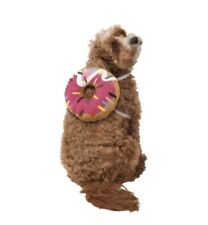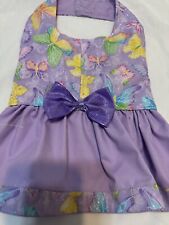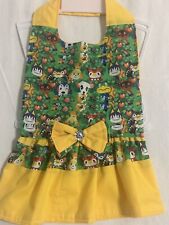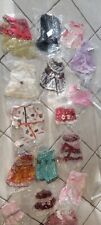Support Your Puppy’s Growth With Proper Nutrition

"Puppies have different nutritional needs than adult and senior dogs," says Katy Nelson, DVM, a Virginia-based emergency veterinarian. "They need a food specifically formulated for young dogs. They also have size-specific needs." Small breeds need more protein and calories. Large-breed puppies must have less of both to avoid joint and bone problems as they grow. Below, Nelson offers more advice on what you should look for when choosing a commercial puppy formula for your young best friend.
Prebiotics
Prebiotics are nondigestible ingredients (oligosaccharides) that work in the digestive system to help good bacteria thrive and multiply. This is important because good bacteria help with digestion. Without them, the body loses nutrients and ends up with gastrointestinal tract irregularity. "We see it all the time in dogs, particularly puppies, because their immune systems aren’t sturdy," says Dr. Nelson.
Prebiotics are especially important in pups because they are naturally nervous critters. Events like thunderstorms, vacuuming, or mom and dad going out of town cause quite a lot of stress. This leads to the release of cortisol, which changes bacteria in the system. Prebiotics help to balance out your puppy’s system, promoting the good bacteria over the bad.
Fish Oil
Plan on teaching your new dog old tricks? A food containing fish oil, which is naturally rich in DHA (docosahexaenoic acid) may make your task easier. Numerous studies show that when pregnant and nursing mothers take DHA, their puppies are more trainable. "It’s brain food," says Dr. Nelson.
Fish oil also helps keep a puppy’s skin and coat healthy. Additionally, it benefits the joints and GI tract by reducing inflammation. "It helps with all body systems," she explains. "I don’t think we’ve reached the tip of the iceberg in understanding its benefits."
Antioxidants
Antioxidants are substances thought to protect cells against the effects of disease-causing free radicals. These free radicals are produced when food is broken down and when there is environmental exposure to toxins. Free radicals likely play a role in health problems such as heart disease and cancer, among others. Puppies who take in antioxidants through food are less likely to have growth abnormalities and are generally healthier in the long run.
High-quality Protein
Protein helps puppies to maintain skin and coat health as well as lean muscle mass, but the jury is still out on what constitutes "high quality." Puppies need a good-quality protein source, whether human grade or directly below. There’s a bad feeling about byproduct meal in the world, but as long as it’s quality-refined, it’s not actually a bad thing. Skin, liver and spleen are nutritious.
Vitamins and Nutrients
Like human infants, puppies have specific nutrient needs. Calcium and phosphorus need to be in proper balance so that bone development is healthy. The same is true for amino acids and vitamins. Look for a commercial food that has been certified "complete and balanced" by AAFCO (Association of American Feed Control Officials), the FDA of pet foods.
Following her own veterinarian’s advice, similar to Dr. Nelson’s, Daisy Lehman ultimately chose for her pug’s first year a complete and balanced puppy food formulated specially for toy breeds. She’s happy to report that her flat-faced friend has grown into an energetic and healthy pooch that’s now nearing doggie adulthood.













